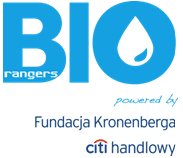

A group of four Polish students supported by The Citi Handlowy Leopold Kronenberg Foundation came second in G20 Global Business Challenge, which attracted 150 teams from all over the world. Thanks to this the Bio Rangers Team won USD 15,000 for the implementation of their project aimed at solving the problem of drinking water shortage worldwide.
"We can be very proud of the Polish team. That distinction proves that they have not only delivered an innovative project but they were also able to defend it in business conditions. I am certain that the international success and the fact that the project was presented in media all over the world will translate to a serious interest in the Water Hub and that we will hear about its creators on several occasions to come, says Iwona Dudzińska, Member of the Management Board of Citi Handlowy.
The final stage of the G20 Global Business Challenge took place in Brisbane, Australia, during the November global G20 summit. The competition was aimed at providing an innovative technological project that could bring a solution of the global problem of water shortage. Aside from receiving financial prizes, the competition winners earned the possibility to promote their projects in books prepared specially for the summit of the 20 most developed economies in the world.
"It is a remarkable place which combines the passion of people that engage in solving some of the most severe problems of today's world with the possibility of meeting face to face with persons who have an actual impact on our reality. Our success would not have been possible without help of numerous people who supported us in Poland and during the competition. We will do everything we can to make the Water Hub project come to life, adds Bartłomiej Głowacki, leader of the Polish 'Bio Rangers' group.
Winners of the competition went through a 3-stage process of selecting the best project. The first stage consisted in preparing, in 2 days, a business plan in the form of a presentation. Next, the prepared materials were presented to the competition jury, which they had 30 minutes to ask questions regarding the proposed projects. The Polish team submitted a project named 'Water Hub', which was based on an interactive kiosk with built-in filters that could purify water, removing even the tiniest micro-organisms from it. The Polish students' project is powered with solar energy and aside from having the filters it is also equipped with Internet connection, cell phone charging stations, cooling devices indispensable for medicine storage and LED displays.

